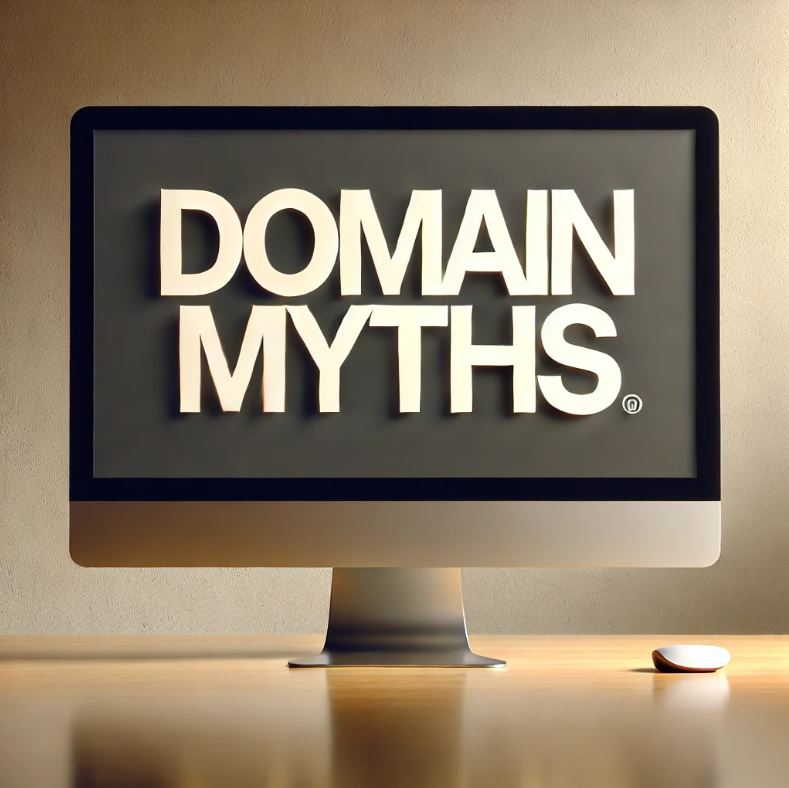 First of all, let’s tackle those deeply rooted myths about domains and SEO. It’s easy to get caught up in old-school advice, but it’s time to separate fact from fiction.
First of all, let’s tackle those deeply rooted myths about domains and SEO. It’s easy to get caught up in old-school advice, but it’s time to separate fact from fiction.
Here’s a common myth: “Buying an old domain always boosts your SEO.” While it’s true that domain age can play a role in search rankings, it’s not as straightforward as just snapping up an old domain and expecting a magic boost. Google looks at many factors, like the site’s content and backlinks. An old domain with a sketchy history won’t necessarily help you.
We’ve also got the myth that keyword-stuffed domains are a surefire way to rank higher. Once upon a time, exact match domains (EMDs) were a hot ticket, but those days are gone. Now, Google’s algorithms focus more on relevant and high-quality content. So, save yourself from cramming every possible keyword into your domain.
The idea that you must have a .com for credibility is another misconception. Sure, .com is the most recognized domain extension, but other extensions like .net, .org, and even newer ones like .io and .co can work just as well, especially if they fit your brand. Don’t be afraid to explore the options.
Another myth that’s floating around is that changing your domain will always ruin your site’s SEO. This isn’t automatically true. With proper planning and execution, including 301 redirects and updating all your backlinks, you can switch domains without catastrophic drops in traffic.
The Impact of Myths on Domain Investments
Are premium domains a golden ticket to online success?
The logic goes, ‘If you spend big on a domain, your site will perform better.’ Reality check: Investing heavily in a domain name doesn’t automatically guarantee traffic or conversions. Your brand strategy, content quality, and overall user experience play massive roles too.
Domain valuations can be misleading
Just because a domain is pricey doesn’t mean it’s valuable. Factors like memorability, relevance, and branding potential should drive your decision, not just the price tag. Remember, a high-cost domain without strategic planning is like buying a sportscar and never learning how to drive.
Are shorter domains always better?
Then there’s the myth that shorter domains are always better. While it’s true that short domains are easier to remember, they’re not the only option. Creativity and clarity in your domain can make just as strong an impression. Think of notable exceptions like Facebook, LinkedIn, or even longer but catchy names like TheHuffingtonPost.
Does following domain trends guarantee success?
Jumping on the latest domain trend might seem appealing, but it’s more important to align your domain with your brand’s identity and goals. Trends come and go, but a well thought out domain name will stand the test of time.
Myths Surrounding Domain Security and Trustworthiness
HTTPS is a security must-have, but the myth that it guarantees a trustworthy website needs busting
HTTPS encrypts data between the browser and the server, making it vital for security, but it doesn’t automatically ensure the site is trustworthy. Scammers often use HTTPS to appear secure, so always look beyond the padlock icon.
The myth that established domains are always secure can lead to overconfidence
Just because a domain has been around doesn’t make it invincible to security threats. Regular audits and updates are crucial to maintaining a secure site regardless of the domain’s age.
Phishing and scams add another layer of complexity to understanding domain trustworthiness
Recognizing potential red flags is key. Suspicious email requests, unexpected pop-ups, and URLs that look off are big clues to potential phishing attempts. It’s not just about the domain name but the overall user experience.
Trust signals go beyond just the domain name and HTTPS status
Look for professional site design, clear contact information, a privacy policy, and genuine customer reviews. These elements together, can help paint a clearer picture of a site’s trustworthiness.
Best Practices: Navigating the World of Domains
Choosing the right domain is like picking the perfect name for a band
It should resonate with your audience and reflect your brand’s identity. Prioritize relevance, simplicity, and memorability over trendiness or length. A clear, concise domain can go a long way in establishing your online presence.
Avoiding common pitfalls in domain selection starts with research
Know your industry and competitors. Be wary of names that are too similar to existing brands as they can lead to legal trouble and confusion. Also, it is best to avoid overly complicated or lengthy domain names that might be hard for users to remember.
Utilizing tools and resources can make your domain journey smoother
Domain registrars often provide useful insights and suggestions. Tools like WHOIS can help you check domain availability and history, while keyword planners can offer guidance on what potential customers might be searching for. Take advantage of these resources to make an informed decision.
The future of domains is always evolving
With new domain extensions and trends emerging. Staying informed and flexible can help you adapt to changes in the digital landscape. Embrace innovation but always keep your brand’s essence in mind.
